1000 Calorie Diet: 3 Sample Meal Plans For Rapid Weight Loss
What you should eat and avoid, easy recipes, and everything else you need to know
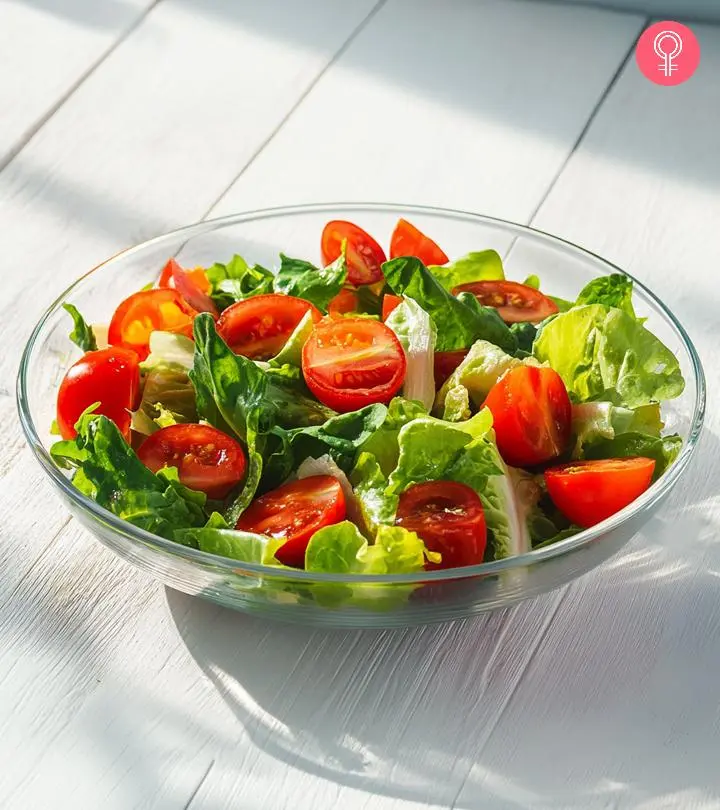
Image: Midjourney/ StyleCraze Design Team
A 1000-calorie diet is specifically designed for rapid weight loss, and the logic behind this plan is simple. Give your body fewer calories, and you are bound to lose weight rapidly, even with little or no exercise. As part of this diet, you take limited carbohydrates, lean protein, and more vegetables and fruits that offer fewer calories. According to studies, this caloric deficit diet may help you lose weight by 8% on average, but the approach is only short-term (1).
Barbara Kovalenko, a nutrition consultant, says, “Eating 1,000 calories per day can cause weight loss, but it depends on a variety of factors, such as your starting weight, muscle mass, and activity level. It is also important to note that a calorie deficit alone is not always the most effective way to lose weight and maintain a healthy lifestyle.”
She adds, “Gaining weight while eating 1,000 calories per day could be due to a variety of factors, such as underreporting calorie intake, overeating on high-calorie foods, or not being active enough. It’s important to consult a healthcare professional or registered dietitian to determine the best plan for you.” Keep reading to know more!
Note: Consult a nutritionist or a doctor before taking up this diet as it requires a drastic caloric restriction.
 At A Glance: 1000-Calorie Diet
At A Glance: 1000-Calorie Diet- Principle: A low-fat, low-carb, 1000-calorie diet rich in proteins, fiber, and vitamin B.
- Purpose: To aid rapid weight loss.
- Who It Is For: People with diabetes, obesity, or those preparing for infertility treatments.
- Duration: Short-term
- Who Should Avoid: Healthy individuals and those with (a history of) eating disorders.
- Cons: May cause fatigue, nutrient deficiencies, nausea, and gallstones.
In This Article
The 1000 Calorie Diet Chart (Sample Plan)
This 1000 calorie diet chart is a sample menu that can be followed by anyone who wants to lose weight drastically.
The plan may vary based on your weight and physical activity. Consult a doctor or a dietitian to adjust it according to your body’s requirements.
Variation 1
| MEAL | WHAT TO EAT | CALORIES |
|---|---|---|
| Early Morning | Apple cider vinegar and warm water | 6 |
| Breakfast | 2 boiled egg whites and a bowl of fruit | 86 |
| Pre-Lunch | 100 g of low-fat yogurt | 154 |
| Lunch | Lettuce taco with yogurt sauce | 351 |
| Post-Lunch | 1 bowl of watermelon | 46 |
| Evening Snack | Green tea and 2 digestive biscuits | 142 |
| Dinner | Vegan salads with fat-free salad dressing | 221 |
Total Calorie Intake – 1008
Useful Tip –You can also have green tea in the morning instead of a detoxification drink.
Green tea has 0 calories. A study done on mice states that it is rich in the antioxidant epigallocatechin gallate (EGCG) that has an anti-obesity effect (2). However, its excess intake can cause electrolyte imbalance. Hence, practice moderation.
Variation 2
| MEAL | WHAT TO EAT | CALORIES |
|---|---|---|
| Early Morning | Honey, lemon juice, and warm water | 70 |
| Breakfast | Oatmeal with strawberries | 101 |
| Pre-Lunch | Green tea | 0 |
| Lunch | Cabbage soup and 100 g low-fat yogurt | 227 |
| Post-Lunch | 1 peach and 1 orange | 98 |
| Evening Snack | Green tea and 2 digestive biscuits | 142 |
| Dinner | 1 bowl of boiled lentils with stir-fried French beans, capsicum, and peas with a dash of chopped garlic | 386 |
Total Calorie Intake – 1024
Variation 3
| MEAL | WHAT TO EAT | CALORIES |
|---|---|---|
| Early Morning | Veggie smoothie made of 1 carrot, 1 tomato, 1 cucumber, and a handful of spinach | 98 |
| Breakfast | Soy milk, 1 slice of multigrain bread, and 2 boiled egg whites OR Soy milk and 1 banana | 157 OR 159 |
| Pre- Lunch | 1 glass buttermilk (if following a non-vegan diet) OR 1 glass watermelon and kiwi juice | 40 OR 91 |
| Lunch | Chicken clear soup with veggies OR Roasted veggies with 100 g yogurt | 187 OR 152 |
| Post-Lunch | 1 pear and 1 orange | 143 |
| Evening Snack | Green tea and 2 digestive biscuits | 142 |
| Dinner | Baked fish and 100g yogurt OR Vegetable clear soup (cabbage, onion, garlic, carrot) with 2 slices of whole wheat bread. | 296 OR 265 |
Total Calorie Intake – 1050
Key Takeaways
- This diet containing 1000 calories per day is for quick weight loss.
- This diet includes foods high in protein and fiber and limits carbs and trans fat.
- Some side effects of this diet are fatigue, a slower heartbeat, and a slowed metabolism.
- Rigorous exercise is not recommended while following this diet.
Video – Expert Speaks About 1000 Calorie Diet
In this video, StyleCraze’s in-house diet expert speaks about the 1000-calorie diet. She provides a complete picture of what is good for dieters who want to try the 1000-calorie diet. Watch this video to know more:
What To Eat
The selection of foods for a 1000-calorie diet should be done carefully to create a healthy menu that will get you the desired results.
- The 1000-calorie diet plan should incorporate foods that are rich in vitamin B, proteins, and fiber, normally found in wheat foods and enzymesi Proteins that help speed up chemical reactions in the body that are responsible for metabolism. .
- This diet is a low-fat diet as it demands a reduction in whole food types, like carbs or trans fats, as your body requires nutrition to improve overall health.
- Calcium can be included in this high-protein diet by taking low-fat milk and green vegetables. Do not ignore fruits and vegetables.
- Fruits like oranges, cantaloupes, kiwi, pears, strawberries, and numerous other berries that offer minimal calories can be used in salads.
- Green veggies like spinach, celery, zucchini, broccoli, and artichokes are rich in vitamins and minerals besides being low-calorie ingredients, making them perfect for this low-carbohydrate diet.
- A single portion of cabbage contains just 35 calories but is pretty rich in nutritional fiber.
- Apart from this, vegetables like cucumber, celery, and eco-friendly peppers have high water content.
 Quick Tip
Quick TipWhat Not To Eat
Here is the list of foods you should absolutely avoid when you are on the 1000-calorie diet:
- Fats And Oils – Coconut oil, groundnut oil, walnut oil, palm oil, avocado oil, lard, and other animal fat oil, butter, peanut butter, almond butter, cashew butter, cheese, cream cheese, and ghee.
- Seeds And Nuts – Hazelnuts, cashew nuts, watermelon seeds, walnuts, pine nuts, desiccated coconut, peanuts, Brazil nuts, pistachio, and chia seeds.
- Dry Fruits – Dates, prunes, dried currants, apricots, figs, and cranberries.
- Fruits, Veggies, And Legumes – Avocado, mango, litchi, chiku, custard apple, potato, corn, lima beans, and soybeans.
- Proteins – Beef, pork, lamb, and tofu.
- Processed Foods – Chips, fries, cookies, cakes, pastries, chocolates, granola bars, and processed crackers.
- Sugary Beverages – Sodas, sweetened fruit juices, energy drinks, flavored lattes, and sugary teas.
Grocery List
Before creating a 1000-calorie diet plan, you need to make your kitchen healthy. Before your meal planning, plan your grocery list beforehand. Here is a list of items that you need to stock up on before you start this diet:
- As it is a low-carb plan, limit buying any grains.
- Seafood, fish, and lean protein like chicken breast.
- Pulses and legumes.
- Seasonal colorful fruits and vegetables.
- Low-fat milk and dairy products.
- Spices and condiments to boost your metabolism.
The 1000 Calorie Diet Recipe
You can control your calorie intake per day, but that does not mean you have to eat boring food.
Make your meals exciting and tasty using seasonal veggies, meat, and spices available in the supermarket, but with a twist. You can consume these recipes while adhering to your portion control. Also, maintain a macronutrient balance to achieve easy weight management without giving up on taste.
1. Lettuce Taco With Yogurt Sauce
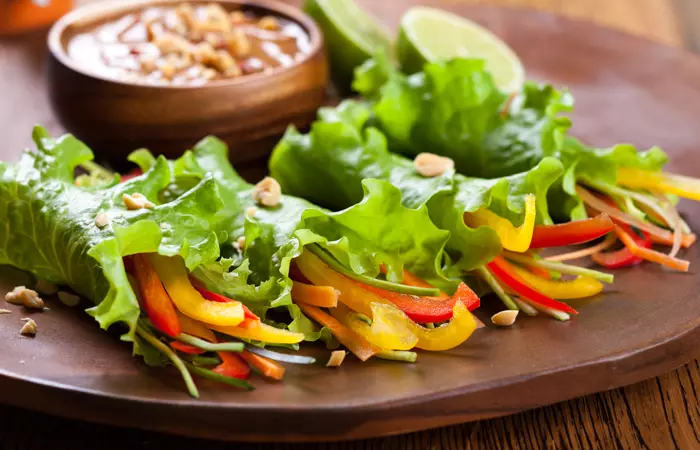
What You Need
- 2 fresh lettuce leaves
- 1/2 cucumber
- 1/2 cucumber
- 1/2 red and yellow bell peppers
- 1 tomato
- 1/2 skinless chicken breast
- 1/2 tablespoon lemon juice
- 1/2 jalapeno
- 100 g yogurt
- A handful of cilantro
- 1 teaspoon chili flakes
- A pinch of salt
- A pinch of pepper
How To Prepare
- Season the skinless chicken breast with salt and pepper and boil it.
- Shred the boiled chicken breast.
- Grate the cucumber.
- Julienne the bell peppers and slice the tomato.
- Slice the jalapeno.
- Take 100 g yogurt in a medium-sized bowl.
- Add the grated cucumber, a pinch of salt, and chili flakes. Mix well.
- Wash the lettuce leaves.
- Place the sliced tomatoes on the lettuce leaves.
- Add the shredded chicken.
- Add a little salt and black pepper if needed.
- Add the bell peppers and jalapenos.
- Put a generous dollop of yogurt sauce on top.
- Finally, add a few cilantro/coriander leaves.
Vegetarian Alternative
If you are a vegetarian, instead of chicken, you can add carrots, stir-fried broccoli florets, and button mushrooms.
Benefits
- The skinless chicken breast is low in calories and a good source of protein, iron, and polyunsaturated fati A type of healthy fat that includes omega-3 and omega-6 fatty acids, which are necessary for brain function. (3).
- Cucumbers are super low in calories. They are good sources of vitamins C and A, magnesium, iron, calcium, and potassium (4).
- The colorful bell peppers are rich in vitamins C and A, potassium, dietary fiber, and minerals, such as magnesium, potassium, and iron (5).
- Lettuce leaves are low in calories and a good source of vitamins A and C, iron, calcium, magnesium, and potassium (6).
- Yogurt is a good source of good gut bacteria that help in digestion (7).
2. Delicious Vegan Ribbons Salad
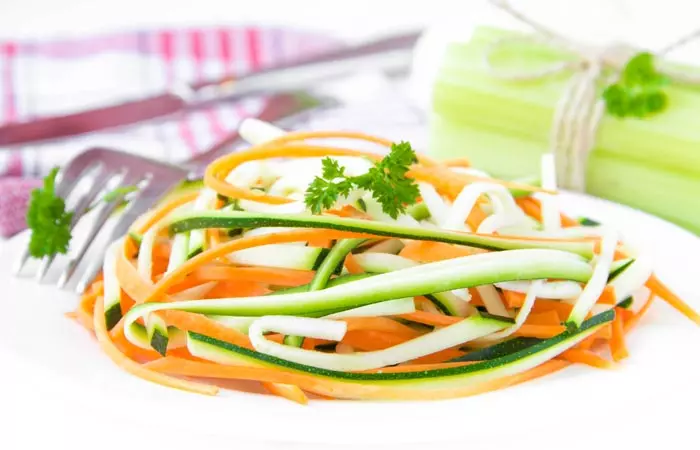
What You Need
- 1 zucchini
- 1 carrot
- 1 tomato
- A handful of spinach
- 1 tablespoon of sesame oil
- Juice of half a lemon
- A few coriander leaves
- A pinch of salt and black pepper
How To Prepare
- Peel the zucchini and carrot into thin ribbons.
- Julienne the tomato.
- Roughly chop a handful of spinach.
- Make the salad dressing by adding sesame oil and lemon juice in a separate bowl and beating the mixture.
- Add a little salt and pepper to the salad dressing. Mix well.
- Add the salad dressing to the veggies.
- Mix well to coat the dressing evenly on the veggies.
- Garnish with coriander leaves.
Non-Vegetarian Alternative
You can add 2-3 thin slices of turkey bacon to this salad.
Benefits
- Zucchini is a low-calorie food and a good source of vitamins C, B6, and A. It has a good amount of potassium, magnesium, dietary fiber, and iron (8).
- Carrots are very rich in vitamin A, potassium, magnesium, and dietary fiber (9).
- Spinach has a good amount of vitamins A, C, and B6. It is also a good source of magnesium, iron, potassium, calcium, and dietary fiber (10).
Even if you have several recipes, you may end up preparing the same dishes and getting bored with your diet plan. So, it is best to follow a meal plan.
Meal Planning Tips
Here are some simple meal plan tips for a 1000-calorie diet:
- Focus on whole foods like fresh fruits, vegetables, lean proteins, and whole grains to maximize nutrients.
- Aim for a mix of protein, fiber, and healthy fats in each meal to keep you satisfied.
- Use measuring cups or a food scale to ensure you stick to your calorie goals.
- Drink plenty of water throughout the day; it can help curb hunger.
- Cook meals ahead of time to avoid unhealthy choices when you’re busy.
- Choose low-calorie snacks like carrot sticks or a small piece of fruit if needed.
Along with this, it is also important to incorporate physical activity into your daily routine. Keep reading to know more.
Role Of Exercise When On The 1000-Calorie Diet

Exercising is a healthy habit. However, the 1000-calorie diet is a low-calorie diet plan for you to lose weight quickly. That is why rigorous exercising is not recommended when you are on this diet. Here’s what you can do:
- Go for a medium-paced walk for 30 minutes daily.
- Do some stretching exercises to improve blood circulation.
- You can try low-impact exercises that burn calories without causing any pain in the joints and muscles.
Caution:If you feel weak after exercising, consult a doctor and stop working out.
How Much Weight Will You Lose On 1000 Calories A Day?
Consuming 1000 calories a day usually creates a significant calorie deficit and results in weight loss. A pound of body weight is roughly equivalent to 3500 calories. Hence, if you consume just 1000 calories a day, you may approximately lose 1 pound per week. However, approach such a low-calorie diet with caution. Severe calorie restriction, while possibly lowering body weight and improving body composition, can also lead to nutritional deficiencies and cause other adverse effects (11). Consult a healthcare professional for a balanced, personalized, and sustainable approach to weight loss.
Note: With a 1000-calorie diet, you can reduce up to 8% of your present weight. Every body type is different, so weight loss may vary from anywhere between 5 pounds to 10 pounds.
Nicholas, a fitness content creator, tried a 1000-calorie-per-day diet along with a proper workout for 12 days. He noticed a 1-and-a-half inch weight loss. He said “12 days of dieting even on an aggressive cut was not hard for me at all. I didn’t feel like I was sacrificing or missing out on a ton of things (i)”.
Following this diet under expert guidance can yield some health benefits. Find out what they are in the next section.
Benefits Of The 1000 Calorie Diet

- The 1000 calorie diet is considered useful when it comes to burning calories at a fast rate as it is a low-calorie diet. This diet is apt if you intend to lose a few pounds quickly or pave the way for a long-term weight loss plan. It could also lead to ketosis (a metabolic state where the body uses the body’s fat for energy due to a lack of carbs), which may help in additional weight loss.
- A 1000-calorie diet can promote weight loss, which is beneficial for individuals with type 2 diabetes. Losing weight improves insulin sensitivity, allowing the body to use insulin more effectively. This helps stabilize blood sugar levels and reduces the risk of complications (12).
- The sample menu of this diet plan provides good nutrition when it is well-balanced.
- This diet primarily emphasizes the consumption of fruits and vegetables as they have few calories and high water content. Hydration is key, and their fiber also promotes hunger management by creating a feeling of fullness.
- It is simple and easy to follow, encourages healthy eating, enables you to shed a few extra pounds, and boosts your confidence.
 Quick Tip
Quick TipSide Effects & Limitations Of The 1000 Calorie Diet

- As it is a low-calorie diet, it lacks certain vital nutrients that provide energy to the body.
- Nutrient deficiencies in this diet can cause dehydration, loss in muscle mass, lack of energy, slower heart rate, hair loss, lower blood sugar levels or an increase in the body’s insulin resistance, and weaker nails.
- The drastic cut in calories lowers your metabolism. A lower metabolic ratei The basal metabolic rate (BMR) indicates the least number of calories required by the body to function while at rest. results in rapid weight gain when the caloric intake is increased in the future (13).
- This diet is suitable for women who have a small frame. It is not considered suitable for men. It can be potentially dangerous for people who have well-built or athletic bodies.
- Starvation is another ill effect of this diet. Exhaustion resulting from the diet can make you susceptible to injuries.
- It can cause fatigue and loss of concentration and make you moody.
- It can cause insomniai Commonly referred to as sleeplessness, it is a sleep disorder that involves consistent problems with falling and staying asleep. .
- If you have a chronic medical condition, are recovering from surgery, or have specific dietary needs, going on this diet unsupervised by a doctor or registered dietitian can have drastic impacts.
- A 1000-calorie diet is not long-term sustainable and is usually used as a temporary solution for particular health objectives under medical supervision.
Does The 1000 Calorie Diet Plan Work? What Samantha Blanton, RDN, Says
According to Samantha Blanton, RDN, “Decreasing your calorie intake to 1,000 calories per day will most likely result in rapid weight loss. But unfortunately, it can also cause drastic damage to your body if adhered to long-term.”
“The average adult has a basal metabolic rate (BMR) of 1,400-1,800, depending on if you’re male or female. When you decrease your calorie intake below your BMR for an extended period, it may cause significant damage, such as slowing your metabolism by increasing muscle loss. Another complication the 1,000-calorie diet may cause is fatigue and weakness. It may result in side effects, such as feeling chronically tired, weak, and unable to perform certain exercises.”
She adds, “There are many other complications that may occur while on the 1,000-calorie diet, such as nutrient deficiencies. Due to the likelihood of potential damage it can cause, I highly recommend you seek out a health professional, such as a registered dietitian, before adhering to the 1,000 calorie diet on your own.”
What Should You Follow?
| Do’s | Don’ts |
|---|---|
| Follow the diet for not more than 10 days. | Do not overeat. |
| Consult your doctor before following the 1000-calorie diet. | Avoid alcohol and sweetened and carbonated beverages. |
| Go for medium-paced walks and light exercises. | Do not sit in one place for too long. |
| Include lots of fresh fruits and veggies in your diet. | Do not skip any of the meals. |
| Consume a good amount of proteins to build your muscle strength. | Do not take stress if you have gone a little above 1000 calories one day. Skip the bowl of watermelon the next day and have a cup of green tea instead. |
| Drink enough water. | Do not stay awake late at night. |
Note: As it is a low-calorie diet plan, you must consume multivitamin and mineral supplements along with vitamin D3. Always consult a doctor before taking any supplements. Also, consult your doctor before combining the low-carb diet with intermittent fasting.
Infographic: Top 5 Benefits Of The 1000-Calorie Diet
The 1000-calorie diet offers a good balance of essential nutrients and helps you lose weight quickly. It’s easy to follow and designed for shedding extra pounds. Check out the infographic below to get an idea about the top 5 benefits of the 1000-calorie diet.
Some thing wrong with infographic shortcode. please verify shortcode syntax
The 1,000-calorie diet helps you lose weight rapidly, provided it has a good balance of macro and micronutrients. It is a low-fat, low-carb, and moderate protein diet that comprises mostly fruits, vegetables, and lean protein like chicken breast and seafood. However, this diet has to be followed under the supervision of a certified dietitian, as an imbalanced low-calorie diet can slow down metabolic rate and cause fatigue, dehydration, hair loss, and muscle loss. Moreover, it is not recommended to do high-impact exercises on this diet. However, you can go on a 30-minute medium-paced walk or do low-impact exercises. So, is 1000 calories a day good? It can be effective for rapid weight loss, but it is important to consult a healthcare professional to determine if it is safe and appropriate for your individual needs and health goals.
Frequently Asked Questions
Why am I not losing weight although I am eating 1,000 calories a day?
Mary Sabat, RDN, says, “If an individual is not losing weight after eating 1000 calories a day, it could be because of several factors, such as lack of physical activity, an unhealthy diet, hormonal imbalances, or other health conditions.”
How many pounds can you lose if you go on a 1000-calorie diet?
With a 1000-calorie diet, you can reduce up to 8% of your present weight. Every body type is different, so weight loss may vary from anywhere between 5 pounds to 10 pounds.
What lean proteins can I have while on the 1000-calorie diet?
You can have skinless chicken, turkey, fish, button mushrooms, and lentils. Avoid beans, tofu, beef, and pork.
I weigh 250 lbs and want to lose weight quickly. Can I go on the 1000-calorie diet for a month?
Depending on your body type, metabolic rate, genetics, age, and medical history, you need to follow a diet that will not harm your body in the long term. Exercising is a healthy option to start with. If you starve yourself, you will gain weight instead of losing it. Seek your doctor’s advice so that your calorie intake is reduced gradually.
Can I lose weight without exercising if I am on the 1000-calorie diet?
Since the 1000-calorie diet has way lesser calories than what you should normally intake, you can pretty much do without exercising. Do some stretching and medium-paced walks to maintain your blood circulation and muscle strength.
I am a breastfeeding mother. Is the 1000-calorie diet right for me?
If you are breastfeeding, it is not advisable to go on a low-calorie or very low-calorie diet. You should consult your doctor or dietitian to know whether you can go on a low-calorie diet so soon.
Can I have a cheat day while on the 1000-calorie diet?
Yes, you can. Make sure you eat in less portions. This will help you the next day. If you eat about 2000 calories (or more), and the next day you want to fast, that is not an option and is not recommended at all. You can have a little more than 1000 calories, say 1300-1400 calories, once a week. This falls in line with the principles of a 1300-calorie diet. Nullify the effect by sticking to the diet and drinking green tea at least twice a day for the next two days.
Lose 3 kgs in a week with this 1000-calorie diet plan! Click on the video below to know more about this Indian diet plan for weight loss and start your journey to a healthier you!
Personal Experience: Source
StyleCraze's articles are interwoven with authentic personal narratives that provide depth and resonance to our content. Below are the sources of the personal accounts referenced in this article.
i. I Tried a 1000 Calorie Per Day Diethttps://www.youtube.com/watch?v=4ZqBcX92SW4
References
Articles on StyleCraze are backed by verified information from peer-reviewed and academic research papers, reputed organizations, research institutions, and medical associations to ensure accuracy and relevance. Read our editorial policy to learn more.
- Diet in the management of weight loss, Canadian Medical Association Journal, US National Library of Medicine, National Institutes of Health.
https://www.ncbi.nlm.nih.gov/pmc/articles/PMC1319349/ - Epigallocatechin gallate attenuates diet-induced obesity in mice by decreasing energy absorption and increasing fat oxidation, International Journal of Obesity, US National Library of Medicine, National Institutes of Health.
https://pubmed.ncbi.nlm.nih.gov/15738931/ - Chicken, broiler or fryers, breast, skinless, boneless, meat only, raw, FoodData Central, U.S. Department of Agriculture.
https://fdc.nal.usda.gov/fdc-app.html#/food-details/171077/nutrients - Cucumber, with peel, raw.
https://fdc.nal.usda.gov/food-details/168409/nutrients - Peppers, sweet, green, raw, FoodData Central, U.S. Department of Agriculture.
https://fdc.nal.usda.gov/fdc-app.html#/food-details/170427/nutrients - Nutritive Value of Lettuce, cos or romaine, raw, FoodData Central, U.S. Department of Agriculture.
https://fdc.nal.usda.gov/fdc-app.html#/food-details/169247/nutrients - Evidence for the effects of yogurt on gut health and obesity,Critical Reviews in Food Science and Nutrition, US National Library of Medicine, National Institutes of Health.
https://pubmed.ncbi.nlm.nih.gov/25875150/ - Nutritive Value of Squash, summer, zucchini, includes skin, raw, FoodData Central, U.S. Department of Agriculture.
https://fdc.nal.usda.gov/fdc-app.html#/food-details/169291/nutrients - Nutritive Value of Carrots, Raw, FoodData Central, U.S. Department of Agriculture.
https://fdc.nal.usda.gov/fdc-app.html#/food-details/170393/nutrients - Nutritive Value of Spinach, raw, FoodData Central,U.S. Department of Agriculture.
https://fdc.nal.usda.gov/fdc-app.html#/food-details/168462/nutrients - The excessive caloric intake and micronutrient deficiencies related to obesity after a long-term interdisciplinary therapy, Nutrition Journal, ScienceDirect
https://www.sciencedirect.com/science/article/pii/S089990071730031X - Dietary Advice For Individuals with Diabetes, US National Library of Medicine, National Institutes of Health.
https://www.ncbi.nlm.nih.gov/books/NBK279012/ - Metabolic predictors of weight gain, International Journal of Obesity and Related Metabolic Disorders, US National Library of Medicine, National Institutes of Health.
https://pubmed.ncbi.nlm.nih.gov/10193860/
- Diet in the management of weight loss, Canadian Medical Association Journal, US National Library of Medicine, National Institutes of Health.
Read full bio of Alexandra Dusenberry
- Mary Sabat, MS, RDN, LD, is a registered dietitian and a certified in personal training by the American Council of Exercise. She has 30 years of experience in nutrition education, wellness coaching, fitness training, holistic health, and weight loss coaching. She obtained her bachelor's degree in Dietetics and Nutrition from the University of Delaware and master’s degree in Human Nutrition with an emphasis on Exercise Science from Rutgers University.
 Mary Sabat, MS, RDN, LD, is a registered dietitian and a certified in personal training by the American Council of Exercise. She has 30 years of experience in nutrition education, wellness coaching, fitness training, holistic health, and weight loss coaching. She obtained her bachelor's degree in Dietetics and Nutrition from the University of Delaware and master’s degree in Human Nutrition with an emphasis on Exercise Science from Rutgers University.
Mary Sabat, MS, RDN, LD, is a registered dietitian and a certified in personal training by the American Council of Exercise. She has 30 years of experience in nutrition education, wellness coaching, fitness training, holistic health, and weight loss coaching. She obtained her bachelor's degree in Dietetics and Nutrition from the University of Delaware and master’s degree in Human Nutrition with an emphasis on Exercise Science from Rutgers University. - Barbara Kovalenko is a nutritional consultant with 4 years of experience in nutrition and mindful eating coaching. She earned her bachelor's degree in nutrition from Bogomolets National Medical University, Ukraine and master's degree from Boston University, USA.
 Barbara Kovalenko is a nutritional consultant with 4 years of experience in nutrition and mindful eating coaching. She earned her bachelor's degree in nutrition from Bogomolets National Medical University, Ukraine and master's degree from Boston University, USA.
Barbara Kovalenko is a nutritional consultant with 4 years of experience in nutrition and mindful eating coaching. She earned her bachelor's degree in nutrition from Bogomolets National Medical University, Ukraine and master's degree from Boston University, USA.
Read full bio of Ravi Teja Tadimalla
Read full bio of Payal Karnik







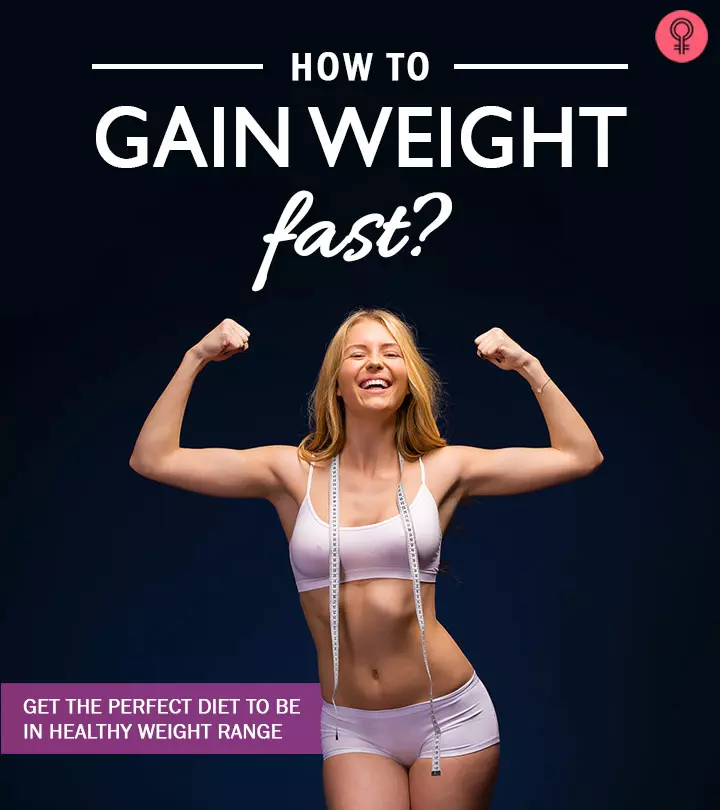
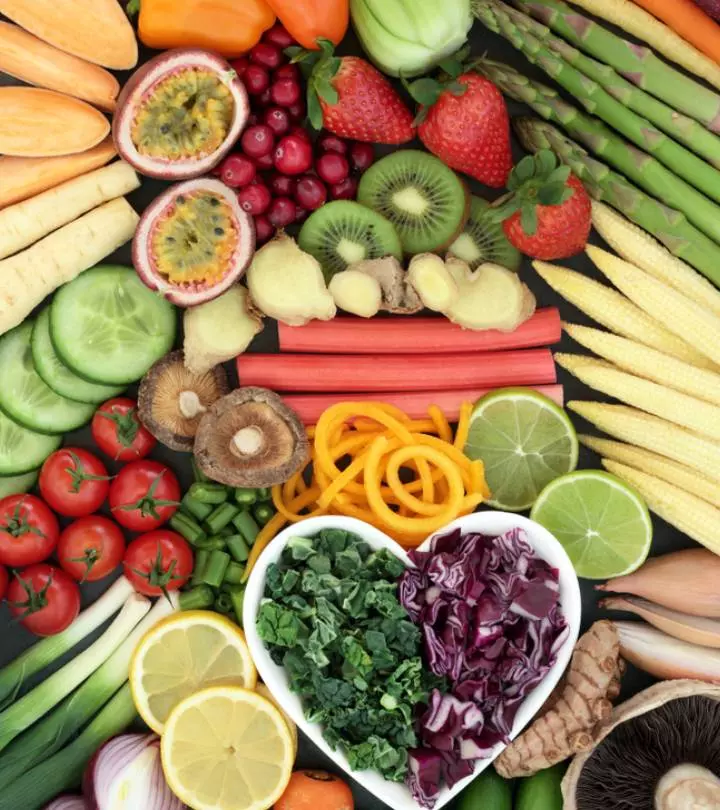
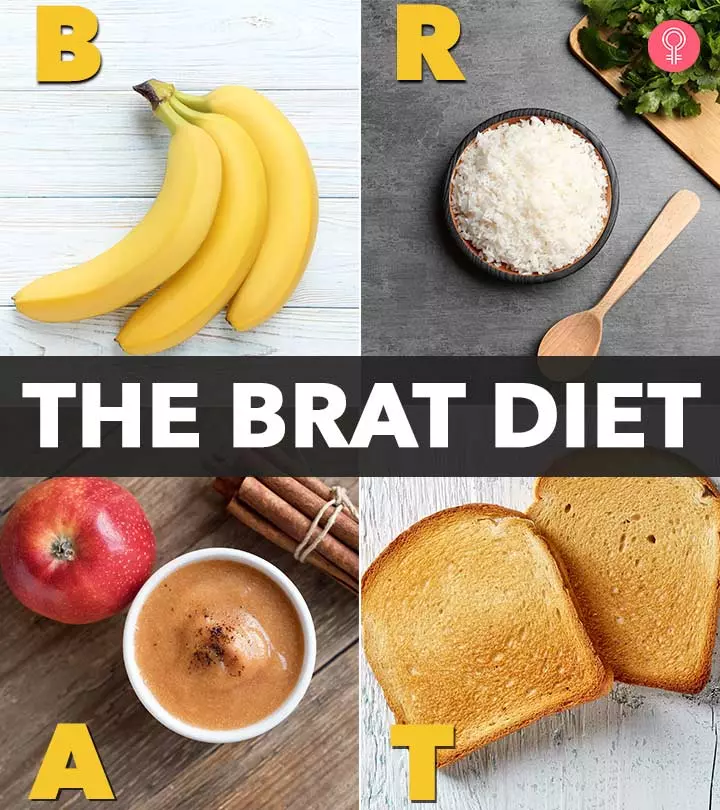
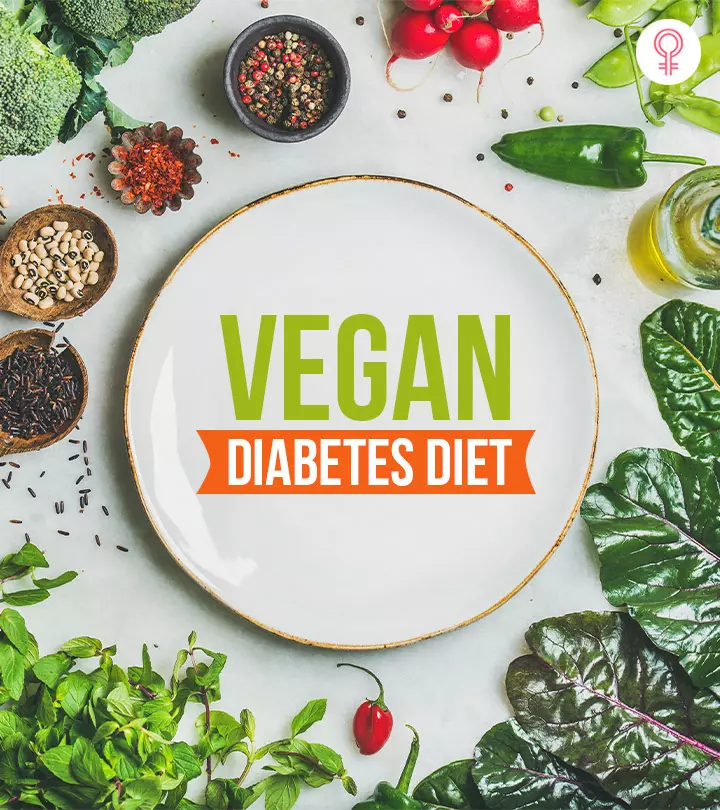
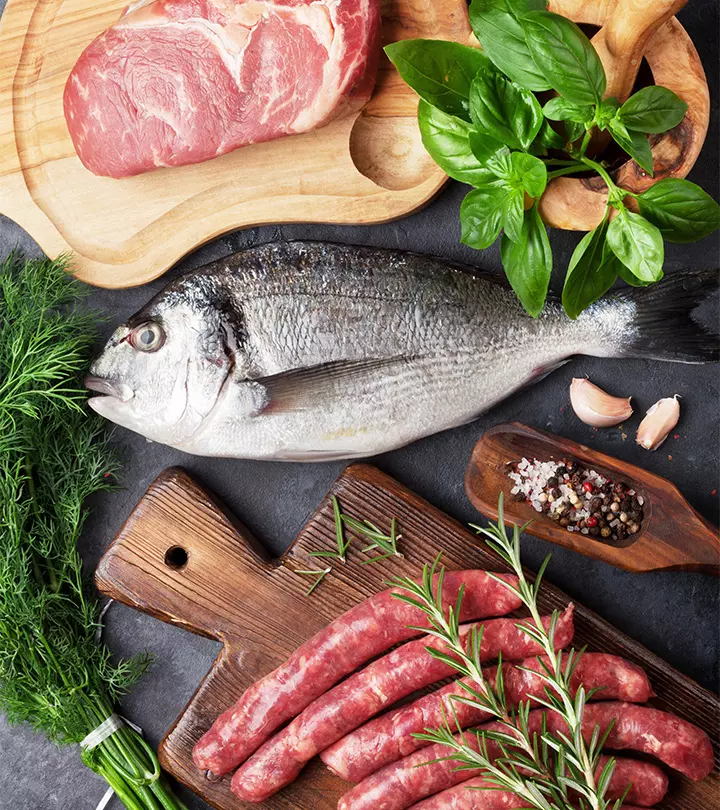

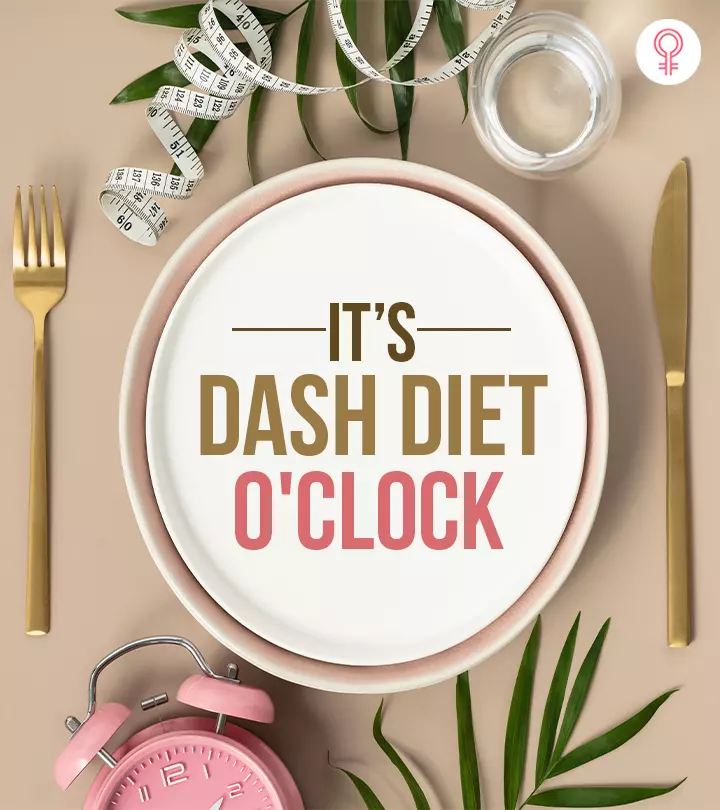
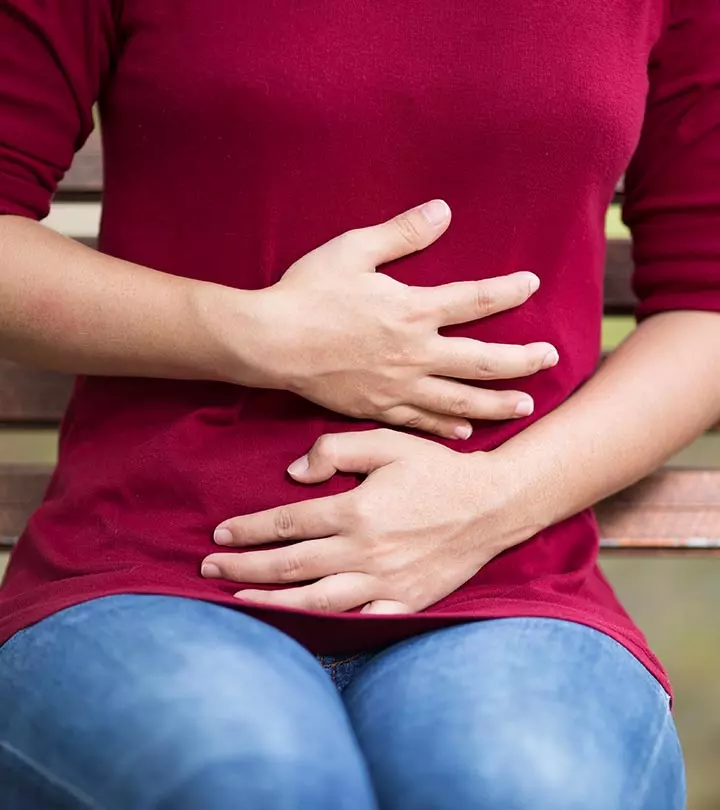
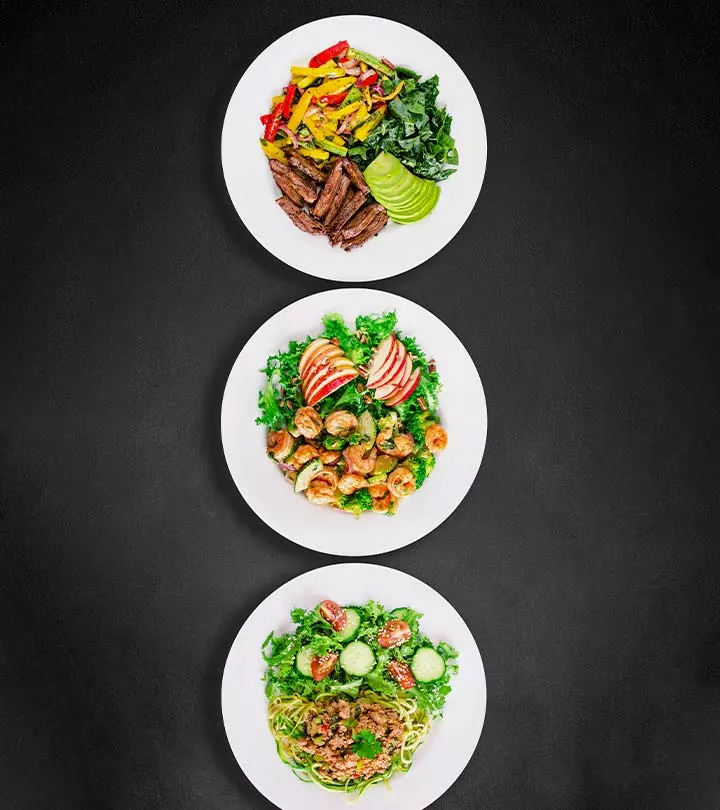
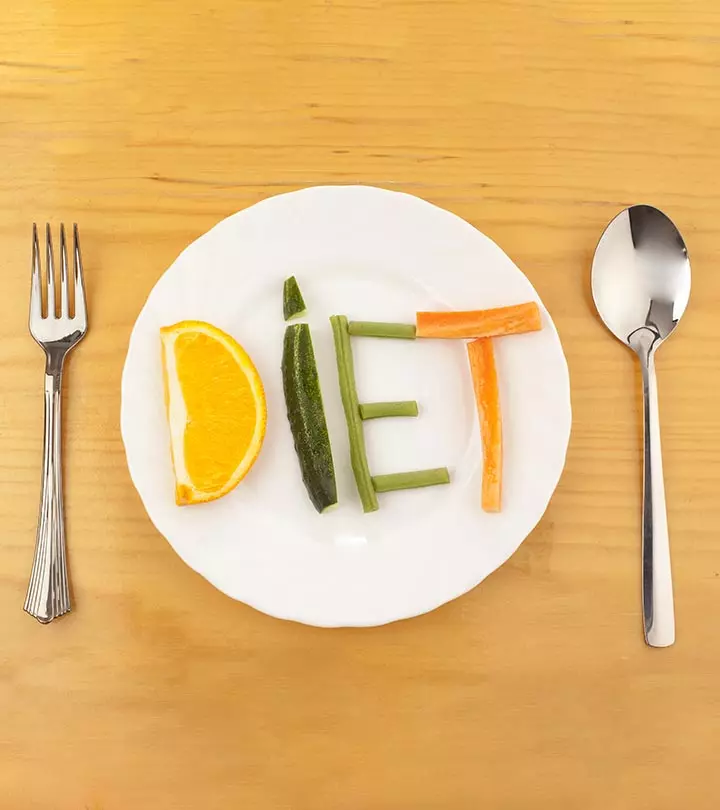
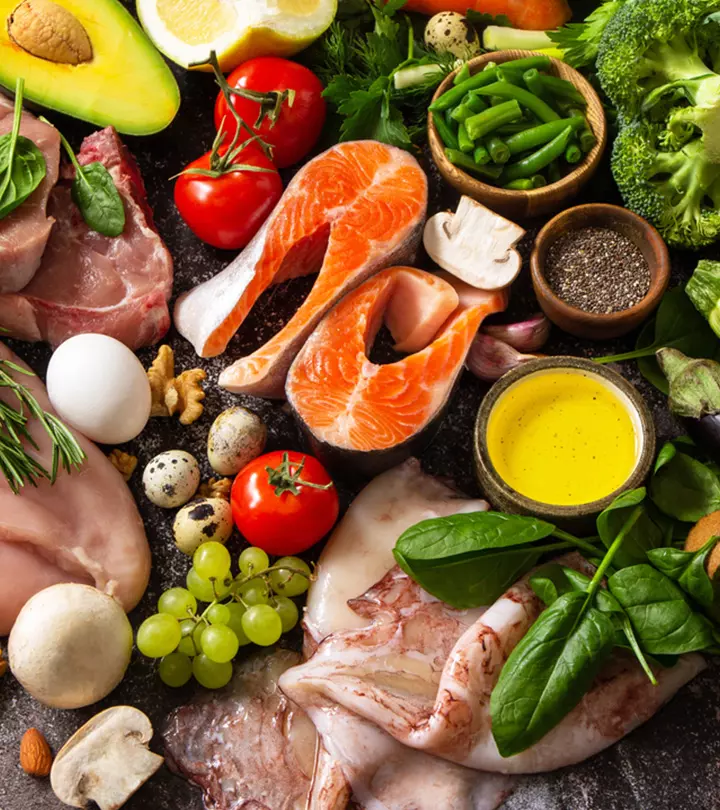
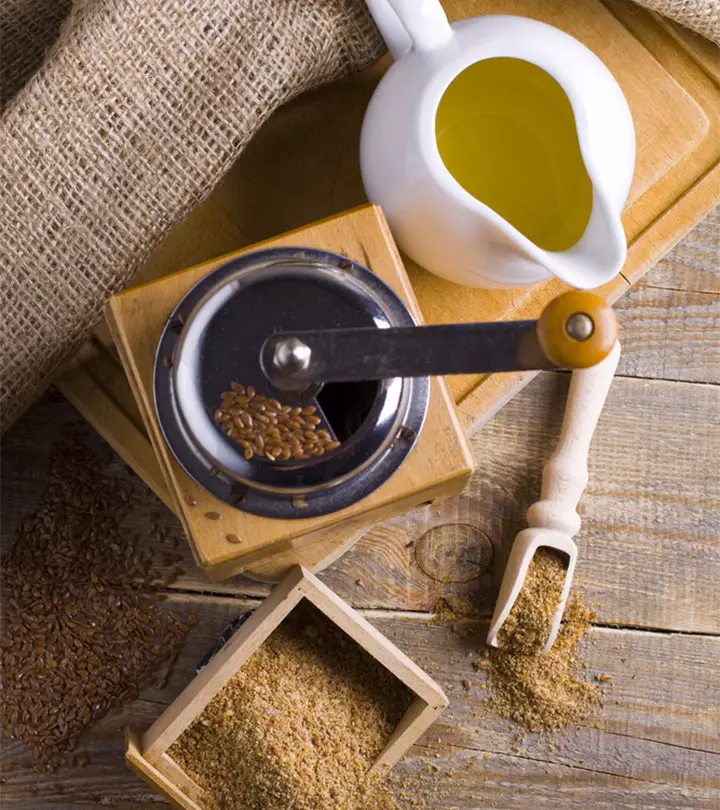
Community Experiences
Join the conversation and become a part of our empowering community! Share your stories, experiences, and insights to connect with other beauty, lifestyle, and health enthusiasts.